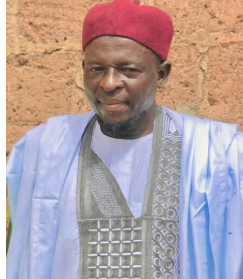Religious clerics have a critical role to play in educating their followers on the importance of child spacing and family planning, emphasising that it aligns with both health benefits and religious teachings.
Sheikh Mai Nasiha, a renowned Islamic scholar, underscored that child spacing is not only beneficial to the health of mothers and children but also consistent with the principles of Islam, which value moderation, responsibility, and the preservation of life.
The revered Sokoto-based Islamic cleric noted that many misconceptions surrounding family planning stem from ignorance and misinterpretation of religious texts.
According to him, clerics carry the responsibility of correcting such notions and guiding their followers with sound knowledge and wisdom.
“Islam encourages the protection of the mother and child. When pregnancies are properly spaced, it reduces health risks, prevents maternal mortality, and ensures the well-being of the family,” Sheikh Mai Nasiha explained during a sermon.
The scholar highlighted that family planning enables parents to adequately cater to their children’s education, nutrition, and upbringing, which are integral responsibilities in Islam.
He emphasised that bringing children into the world without the means to care for them contradicts the values of justice and compassion in the religion.
Religious leaders, he maintained, are highly respected voices in society and must use their influence to dispel myths and misconceptions about child spacing.
By doing so, they can help families make informed decisions that strengthen both their health and economic stability.
Sheikh Mai Nasiha cautioned against viewing family planning solely as a Western idea, insisting that its essence is rooted in the wisdom and responsibility that Islam encourages.
He urged couples to consult medical experts alongside seeking religious guidance when making decisions on birth spacing.
The cleric called on fellow scholars and Imams across mosques in Sokoto and beyond to include discussions on child spacing in their sermons and teaching sessions.
This, he said, would reach the grassroots and create awareness among people in both rural and urban communities.
He further urged government agencies and non-governmental organisations to collaborate with religious leaders in sensitisation campaigns.
Such partnerships, he noted, would bridge the gap between medical science and religious understanding.
With proper guidance from religious clerics, more families are likely to appreciate the benefits of child spacing and family planning, not only for health but also for fulfilling their religious and social obligations.
The intervention of prominent scholars like Sheikh Mai Nasiha is critical in breaking cultural and religious barriers that have hindered the acceptance of family planning initiatives in many parts of Northern Nigeria.
By leveraging their influence and authority, religious leaders can champion a new narrative that harmonises health benefits with faith, ensuring healthier families, stronger communities, and a more prosperous society.















